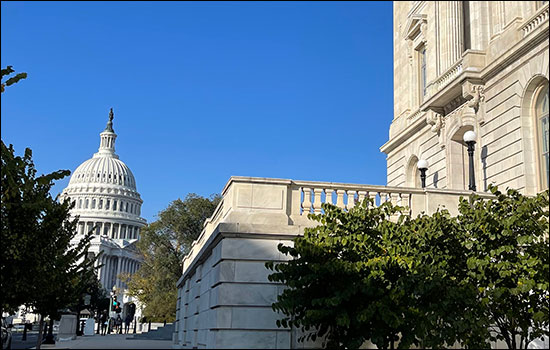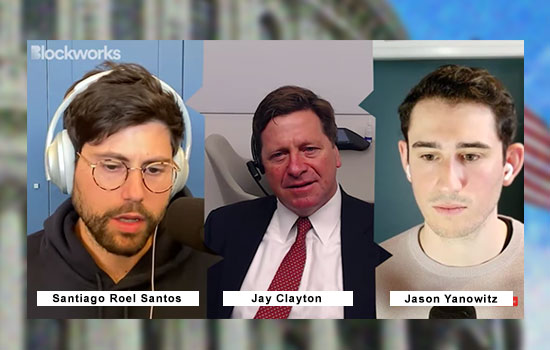Up-to-the-minute regulatory prognostications attracted strong attendance to a Permissionless 2022 panel discussion in Palm Beach, Florida last Wednesday.
Coming only a week after the TerraUSD and LUNA stablecoin debacle, everyone agreed that decentralized finance (DeFi) is receiving a brighter spotlight than ever. And in the wide-ranging discussion titled, “Regulatory Clouds on the Horizon,” industry advocates addressed the clouds which could rain potential regulation as well as who or what should ultimately be in charge of jurisdiction for the wider crypto ecosystem: the SEC, CFTC or a self-regulatory body.
Panelists included:
-
- Perianne Boring, Founder & President, Chamber of Digital Commerce
- Brian Quintenz, Former Commissioner, CFTC and an advisor at a16z
- Ron Hammond, Director of Government Relations, Blockchain Association
- Moderator: Jordan Nof, Co-Founder & Managing Partner, Tusk Venture
Quotes are lightly edited for clarity.
Moderator Jordan Nof of Tusk Venture Partners immediately began with the Terra elephant-in-the-room as Chamber of Digital Commerce’s Perianne Boring revealed that her association’s members are wondering how Terra will affect regulatory momentum, but noted the unique properties of Terra’s product saying:
“What’s interesting about Terra in particular is that it’s an algorithmic stablecoin. For those who have been following stablecoin policy closely, the President’s Working Group (PWG) on financial markets put out a set of recommendations for stablecoins last November – and that [group] included the chair of the SEC, the chair of the CFTC, the Fed, and Treasury. Treasury Secretary Yellen led this effort. The group had a number of recommendations for new regulations for stablecoins -essentially, Congress is going to need to implement these recommendations. The scope of that report and the recommendations was limited to stablecoins that are backed one-to-one to the dollar reserves in a bank account. Algorithmic stablecoins were outside of that scope. So when Secretary Yellen pointed to Terra recently and said, ‘Look, this is why we need to push stablecoin recommendations forward.’ -to me, I didn’t think that was productive because the recommendations didn’t include algorithmic stablecoins. And I think it gives a lot of fuel to the SEC.
For those who remember SEC Chairman Gensler’s remarks, he started using a different vernacular. He started calling them ‘stable value funds’ (instead of stablecoins), essentially trying to put forward the argument that these are securities and they should be under the SEC’s jurisdiction. So, I think that the SEC could pretty easily say, ‘Look, this is why it should be within our jurisdiction.’
Continue reading “In Spite of Terra, No Stablecoin Regulation Before End of Year”





